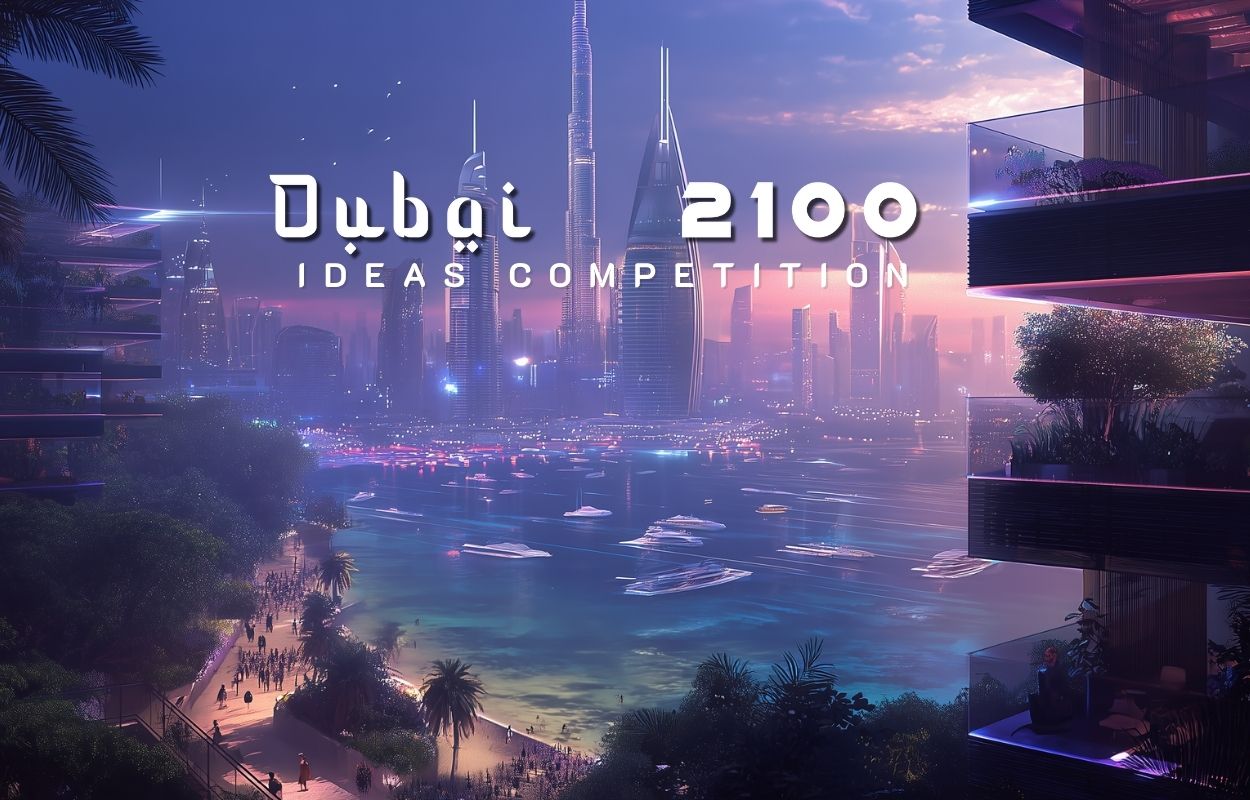
Dubai 2100
How will one of the world’s most ambitious cities evolve over the next century? The Dubai 2100 Ideas Competition challenged designers across the globe to imagine a bold, sustainable, and visionary future for Dubai—one that honors its cultural roots while embracing radical innovation. From floating biomes to dome cities and climate-adapted communities, these winning proposals offer groundbreaking interpretations of urban life in the next era. More than just beautiful concepts, they reflect new ways of thinking about resilience, identity, and the relationship between nature, technology, and humanity. Explore the ideas shaping tomorrow’s Dubai.
- site: 4 iconic sites in Dubai
- resource: 3D models and maps
- jury: Members from top firms and Academia
- certificate: Awarded to all winners and Mentions
The Winning Visions of Dubai 2100
The winners of the Dubai 2100 Ideas Competition showcase three distinct and visionary futures for one of the world’s most progressive cities. Each proposal redefines what Dubai could become a century from now—fusing cultural depth, environmental awareness, and architectural imagination.
Dubai Horizon
Inspired by the spiritual symbolism of the minaret, Dubai Horizon presents a breathtaking, vertical city built around two monumental districts: Dome City and the Green Ark. Combining Islamic architectural heritage with lush ecological landscapes and sky-level infrastructure, this dreamlike proposal envisions Dubai as a global beacon of culture, sustainability, and futuristic design.
Project Aurora
Project Aurora lifts Dubai into the sky—literally—with a vision of floating biomes that offer diverse environments above the urban core. From snowy sky resorts and tropical islands to Icelandic retreats, the design explores the harmony between nature and technology, presenting a utopian model of coexistence and vertical living.
Dubai 370
Rooted in realism and resilience, Dubai 370 offers a grounded response to climate extremes and urban density. The proposal introduces urban oases, compact climate-adapted neighborhoods, and monumental superstructures, creating a district built to withstand the environmental challenges of tomorrow while preserving culture and promoting long-term sustainability.
Together, these winning projects reveal bold, provocative answers to a singular question: How will Dubai grow, adapt, and lead in the next 100 years? From the earth to the sky, each vision pushes the boundaries of design—and offers a new blueprint for cities of the future.
The Winning Projects
1st PlaceDubai Horizon
Dubai Horizon envisions a dreamlike, future-forward city rooted in Islamic cultural identity, with the minaret as its central architectural inspiration. The proposal features Dome City, a monumental urban center crowned by the 200-meter-high "Future Dome", and the Green Ark, a lush, ecological bay corridor integrating supertall towers with expansive greenery. Together, they form a vertical, interconnected metropolis that blends tradition, nature, and next-generation technology into a vibrant vision of tomorrow’s Dubai.
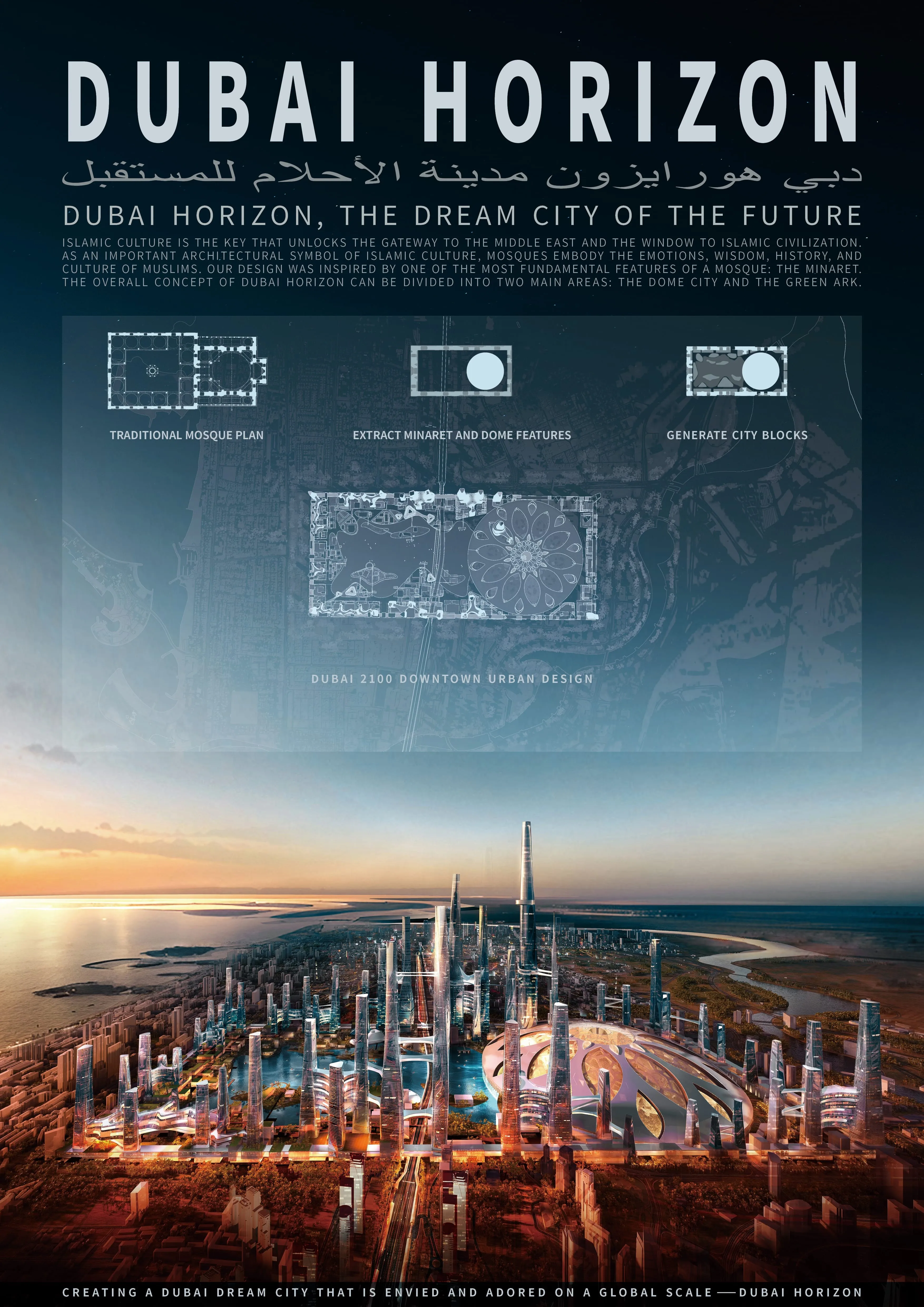
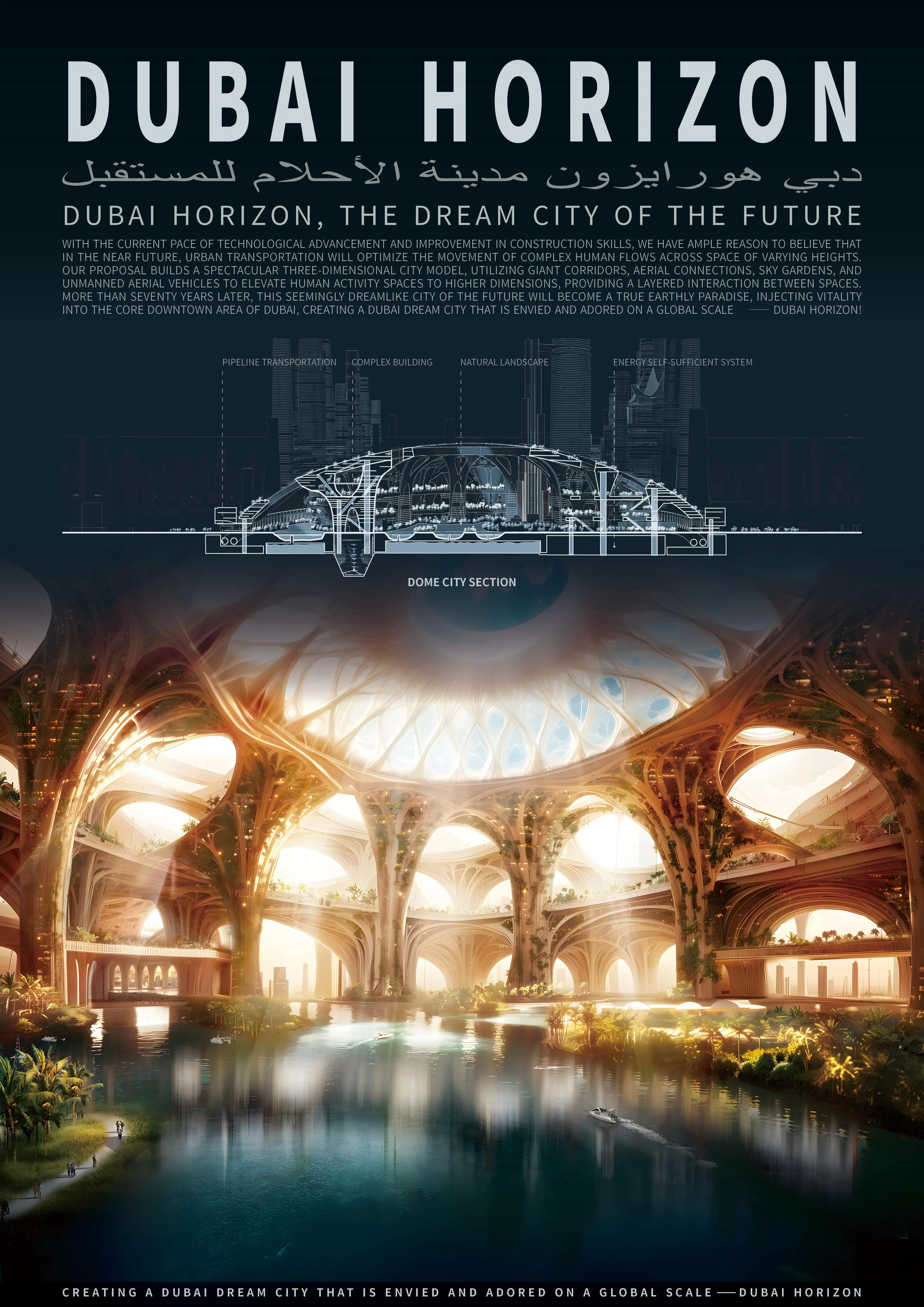
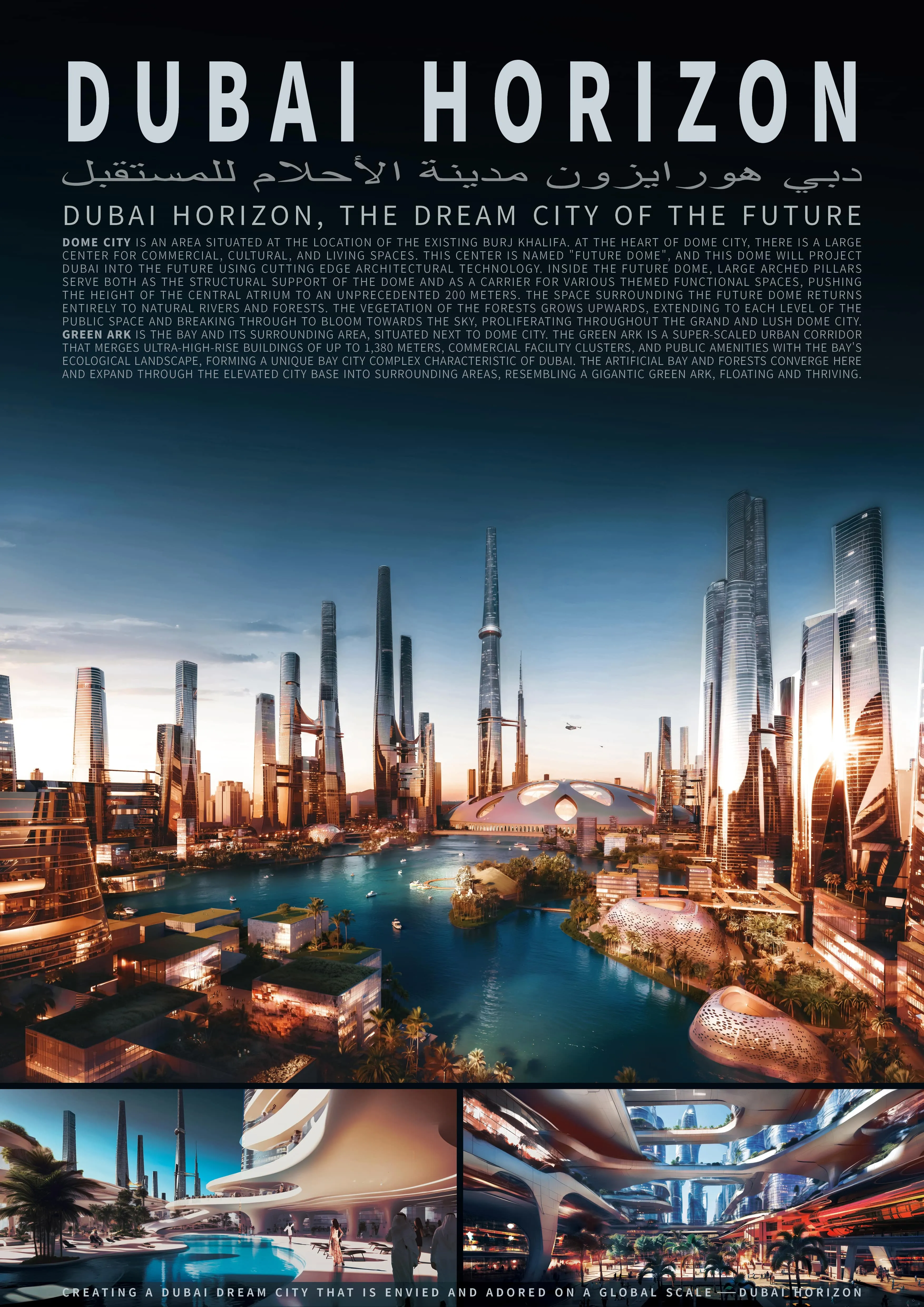
- 🇦🇺Paul PengIAPA PTY. LTD.
- 🇨🇳Ding YuIAPA PTY. LTD.
- 🇨🇳Chao FangIAPA PTY. LTD.
- 🇨🇳Jing QiuIAPA PTY. LTD.
2nd PlaceAurora
Project Aurora envisions Dubai in 2100 as a futuristic city beneath a constellation of floating biomes—engineered islands that blend advanced technology with natural ecosystems. From tropical beaches and cascading waterfalls to sky-high ski resorts and Icelandic retreats, each biome offers a distinct lifestyle and environment. Together, they represent a visionary model of coexistence, where innovation, sustainability, and serenity redefine urban living.
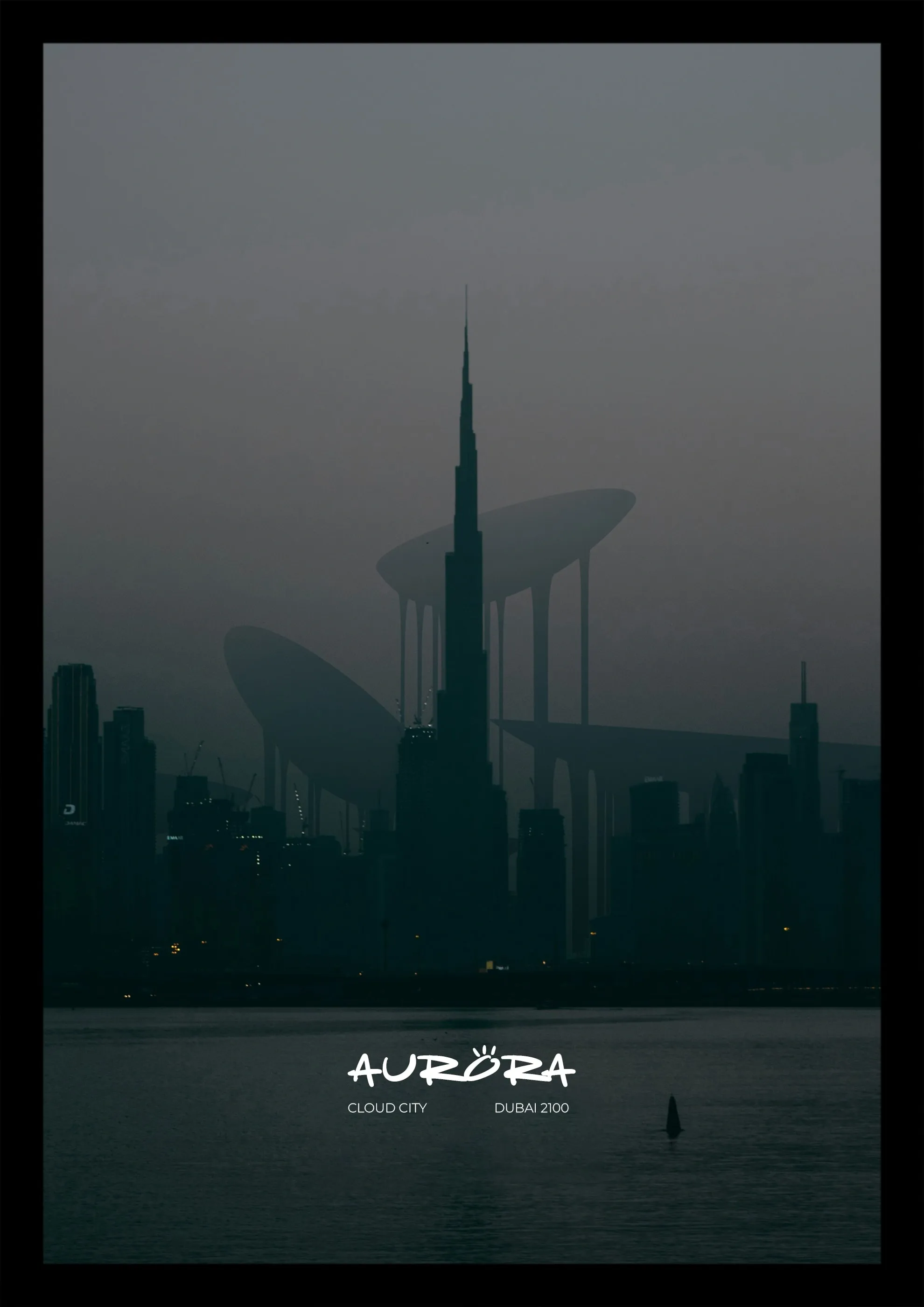
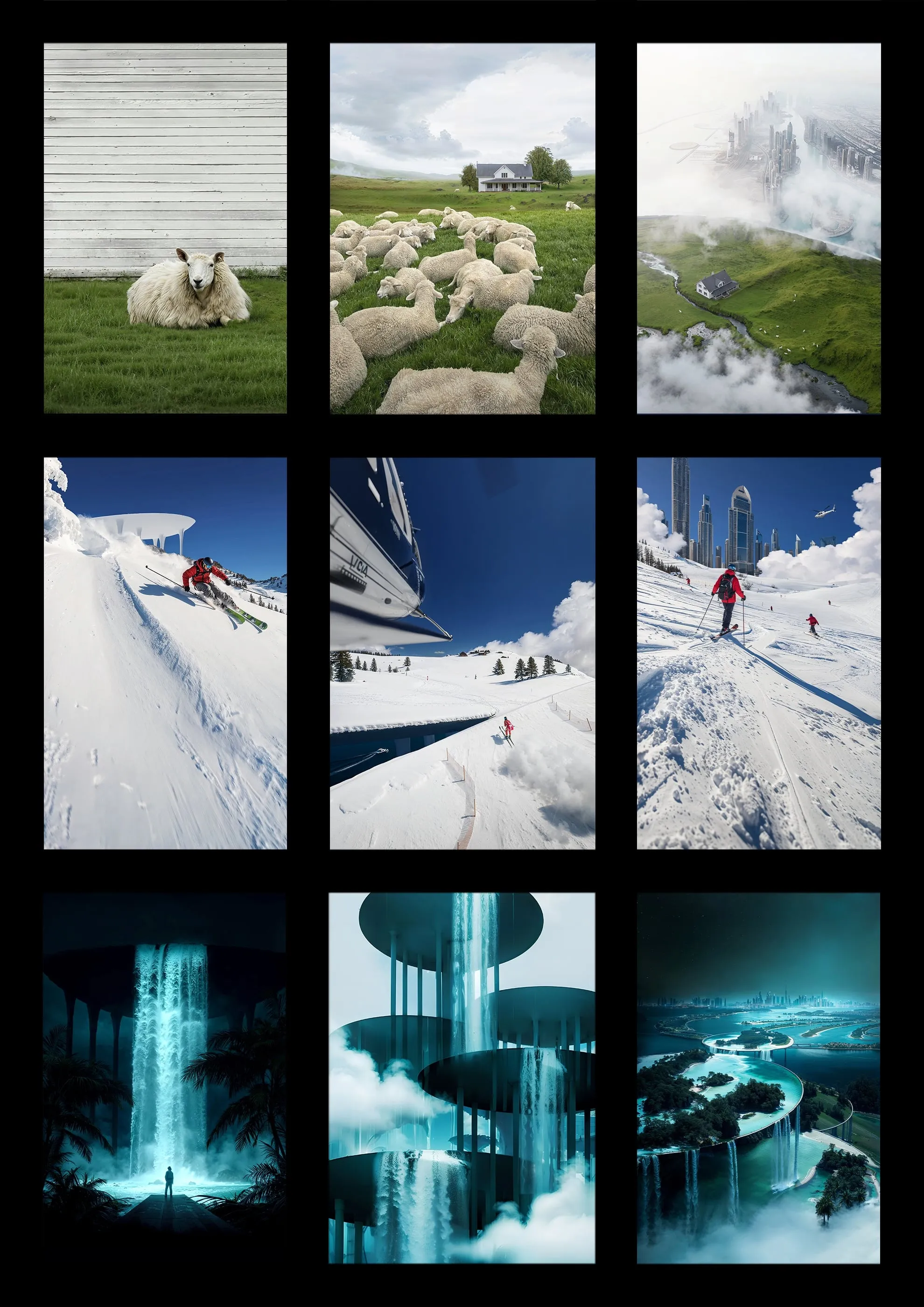
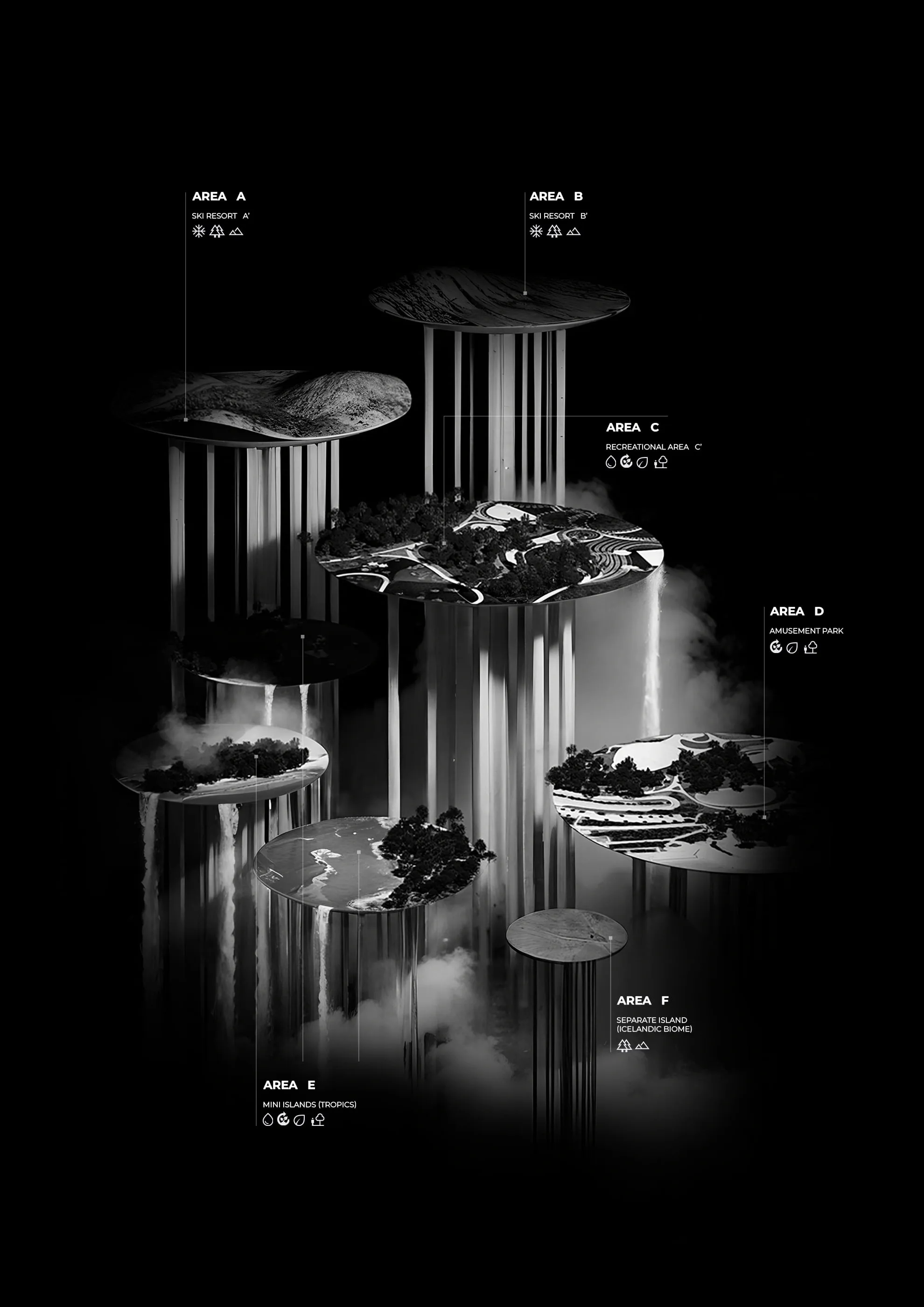
- 🇬🇧Artem KuprianenkoOmegarender
- 🇺🇸Vladislav SidorenkoTanevoo
- 🇬🇧Yuriy SpasovIndependent
- 🇬🇧Denys OnyshchenkoOmegarender
3rd PlaceDubai 370
Dubai 370 is a visionary pilot district in the Expo area that reimagines urban life in a world facing climate extremes, overpopulation, and shifting energy dynamics. The proposal centers on three key elements: sustainable urban oases, compact, climate-adapted neighborhoods, and monumental superstructures for public infrastructure. Rooted in cultural symbolism and long-term resilience, Dubai 370 embraces raw aesthetics, behavioral adaptation, and soil-centered ecology to shape a future-ready, human-centric city.
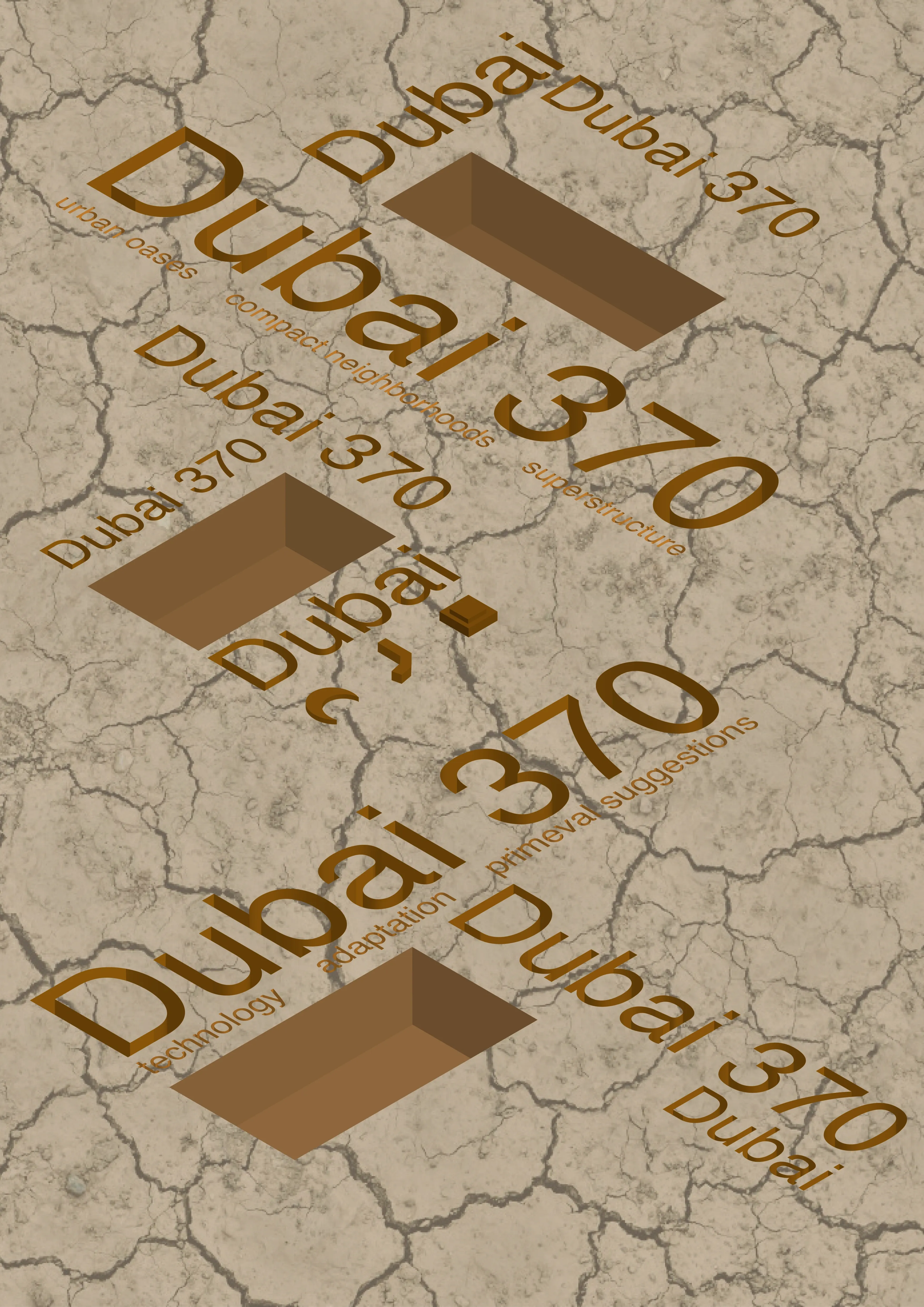
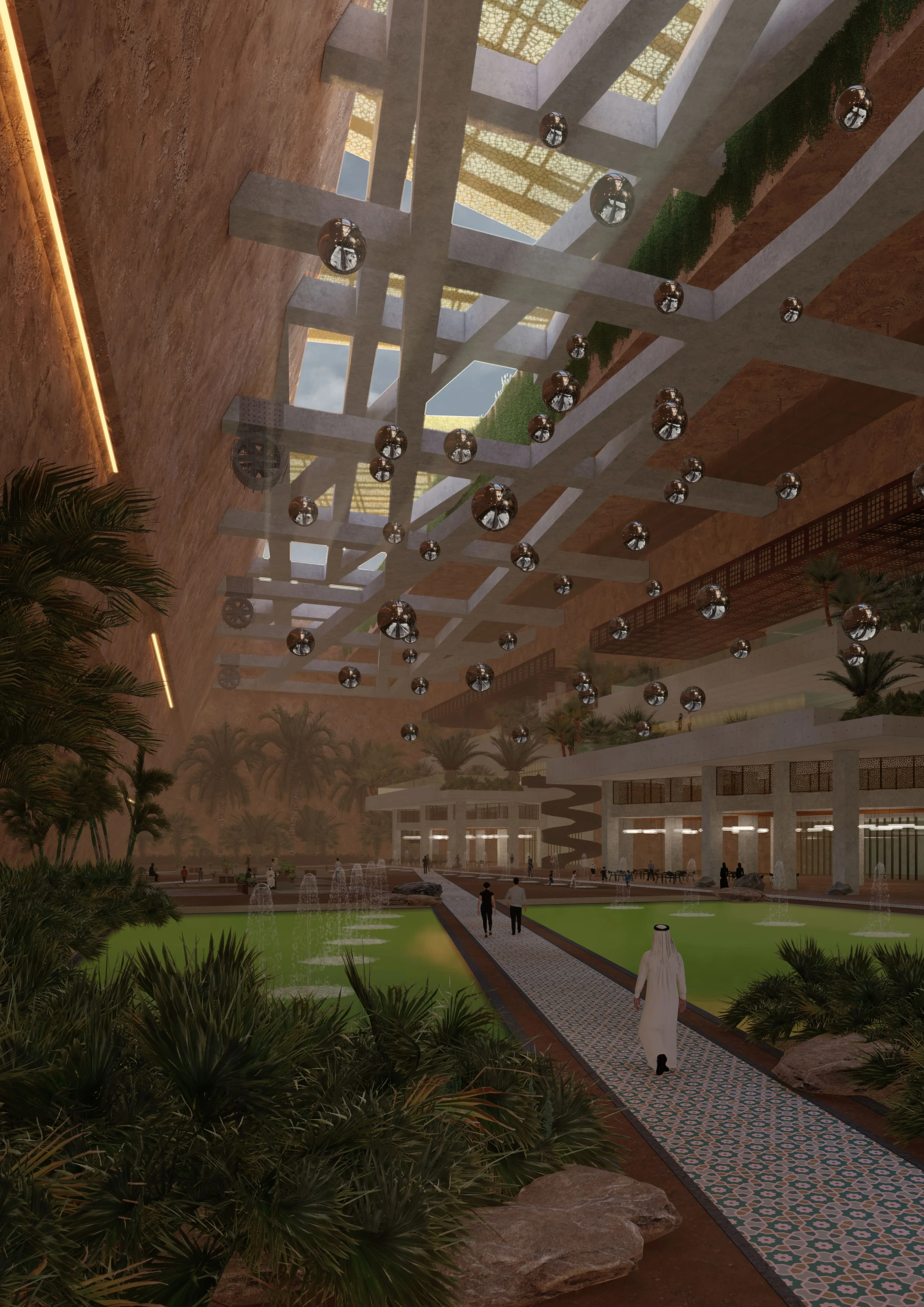
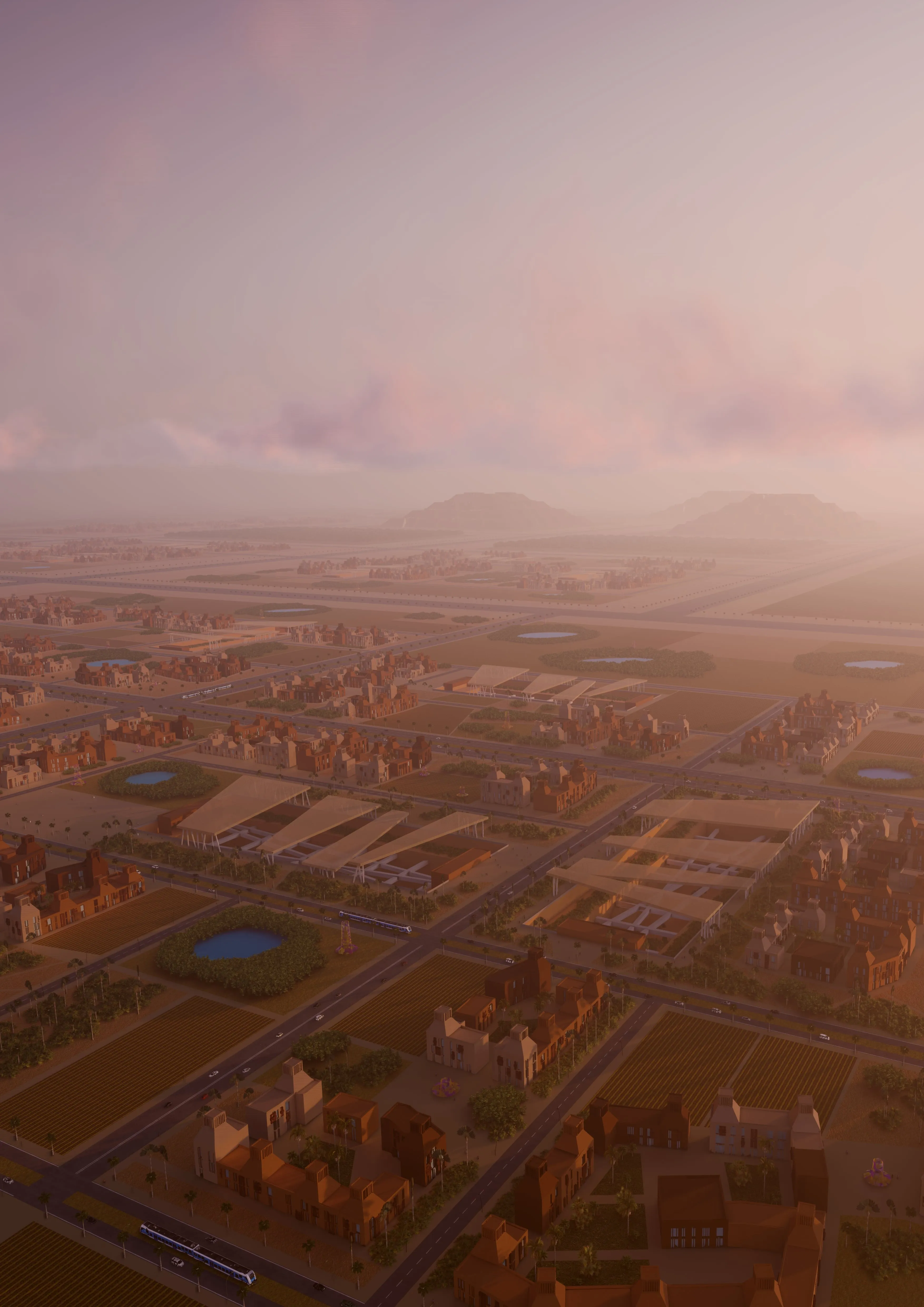
- 🇨🇳Marco Di FoglioIndependent
Jury Feedback
“Visually ambitious but disconnected from local realities—its energy-intensive design risks reinforcing the very challenges Dubai must overcome.”
— Soham De, on Project Aurora (2nd Place)
“A bold and culturally rich vision with striking architectural elements like the Dome City and Green Ark. However, the lack of integration between key components and the disconnect from human scale limit its urban cohesion.”
— Soham De, on Dubai Horizon (1st Place)
“An imaginative concept with commendable ambition, but challenges in scale and execution ultimately limited its impact.”
— Iulia Ilie, on Project Aurora (2nd Place)
“A fair and engaging proposal with a strong and meaningful link to Islamic culture.”
— Rahesh Ram, on Dubai Horizon (1st Place)
“An eye-catching concept with interesting towers, but it leans more toward a vacation wonderland—echoing what Dubai already is.”
— Rahesh Ram, on Project Aurora (2nd Place)
“A concept with strong potential, though much of it feels unresolved. Its most prominent feature remains the impressive height, rather than deeper design development.”
— Calin Negret, on Dubai Horizon (1st Place)
The Jury Members
For the Dubai 2100 Competition, we assembled a panel of distinguished professionals from across architecture, design, and academia. Each jury member brought a unique perspective and deep expertise to evaluate submissions based on creativity, feasibility, cultural relevance, and future impact. Their insight was essential in selecting the boldest and most visionary proposals
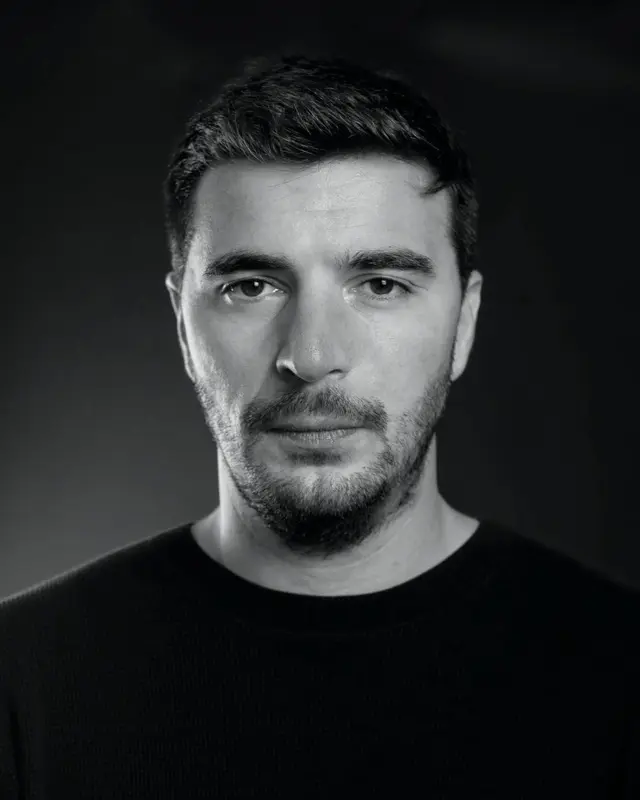
Calin Negret
Senior Designer, Zaha Hadid ArchitectsCalin is a Senior Designer at Zaha Hadid Architects, contributing to innovative projects worldwide. Notably, his computational design skills played a key role in the development of Tower C in Shenzhen, an iconic twin tower. He has also worked at Gensler in London. With a diverse background in architecture and computational design, Calin has applied his expertise to projects ranging from urban planning and architectural design to industrial design and virtual reality environments. In his approach, Calin uses modern tools to create seamless design experiences from concept to final product. His holistic design thinking ensures cohesive, impactful results that enhance both visual and functional aspects while promoting efficiency and sustainability.

Iulia Ilie
Senior Landscape & Urban Designer, Bjarke Ingels GroupIulia is a Project Lead in the Landscape and Urban Design Departments and Senior Landscape Designer in Bjarke Ingels Group, London Office. She has extensive experience with multi-disciplinary masterplans and typologies (particularly public realm, mixed-use, residential) and regions (UK, Middle East, Europe), with an academic background in architecture and urban design completed in Belgium and Romania. Iulia has been working as an urbanist for 5 years and as an architect for 8 years, making her approach a comprehensive and holistic one, with a focus on nature-based solutions, ecological restoration and research & design methodology in challenging climates.
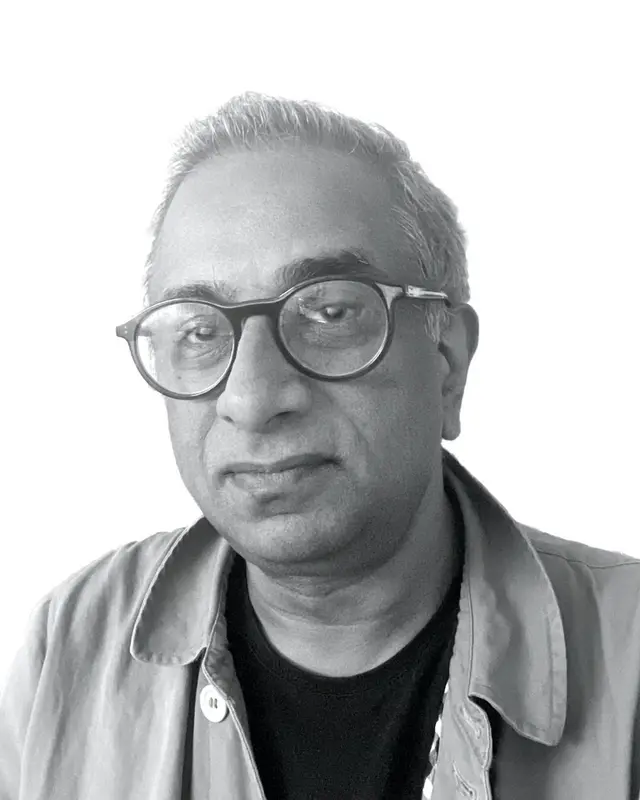
Rahesh Ram
Associate Head of School of Design, The University of GreenwichRahesh Ram serves as the Associate Head of School of Design at the University of Greenwich, where he has been nurturing architectural minds for nearly two decades, teaching BA and MA design units. He is the leading tutor for Unit 12, dedicating himself to hands-on education that fosters critical thinking and creativity among the next generation of designers. His academic interests lie at the intersection of narrative architecture and speculative design. Additionally, Rahesh contributes to the development of the curriculum as the Lead of the Masters Programme at the University of Greenwich.
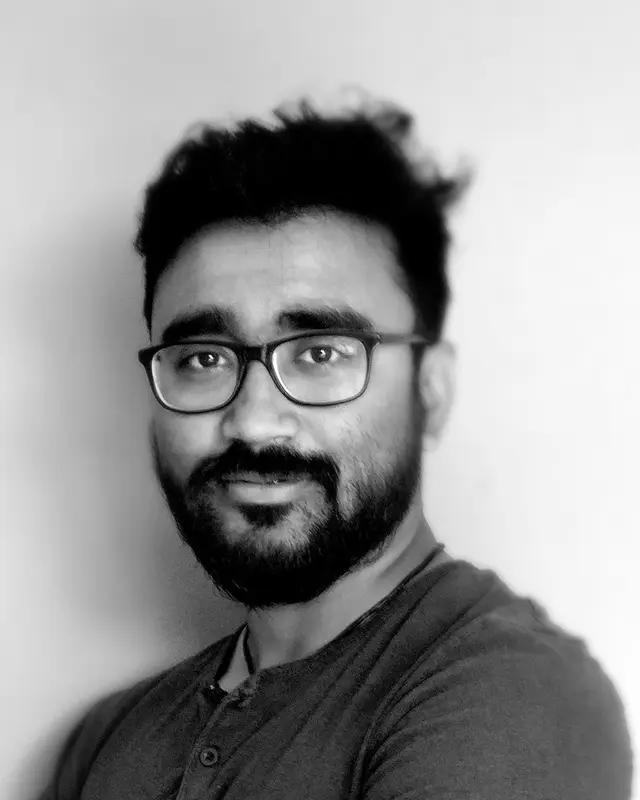
Soham De
Director & Co-founder, EcoResponsive EnvironmentsSoham is a co-founding director of EcoResponsive Environments, a London-based architectural and urban design firm dedicated to sustainable, low-carbon projects. His work includes award-winning masterplans for Letchworth Garden City and the zero-carbon Heath Business Park, later recognized for its innovation with accolades such as the Golden Pineapple and a National Urban Design Award. Soham has also served on the Pineapple Awards jury and co-authored EcoResponsive Environments. His artistic contributions extend to multiple exhibitions and book illustrations.
Similar Competitions
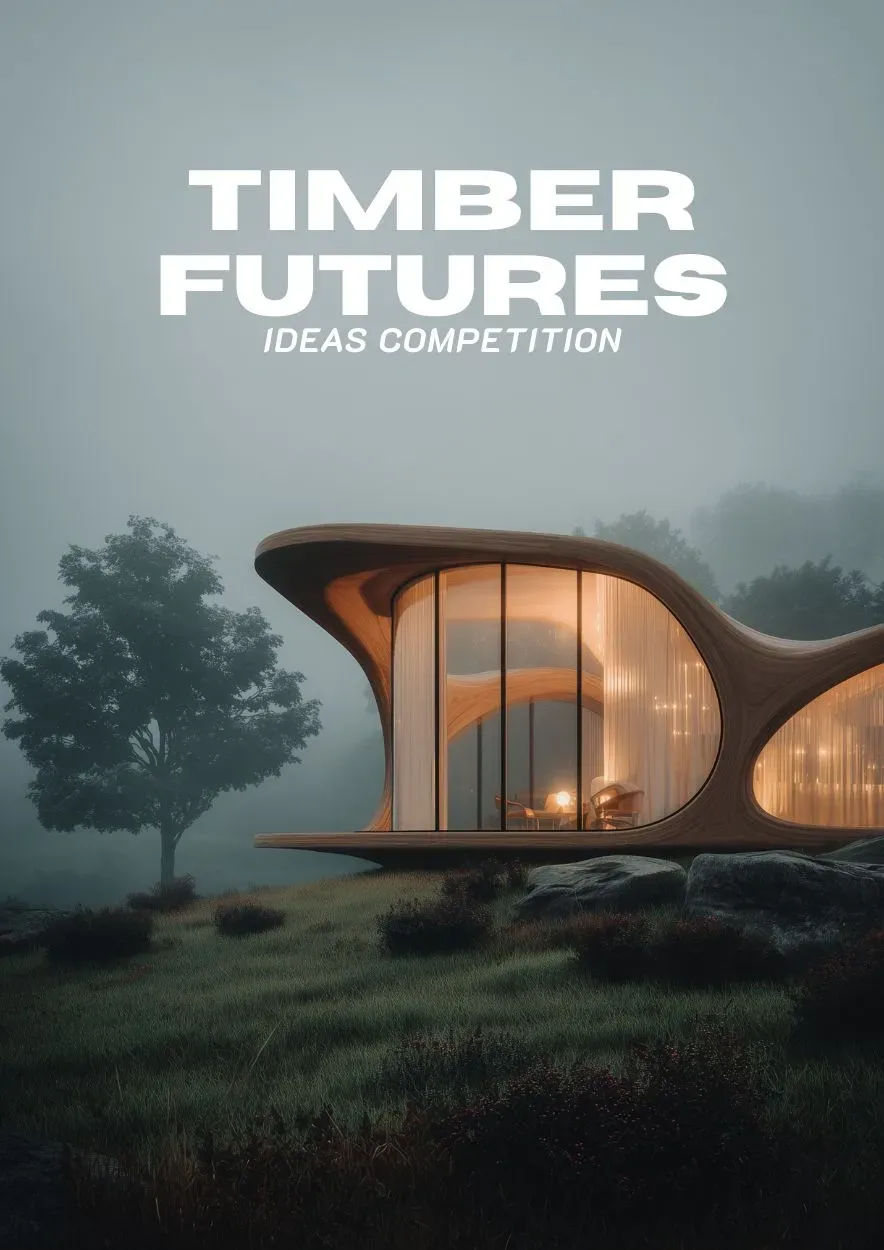
A global design competition empowering the next generation to build boldly with timber. Step into a new era of sustainable architecture.